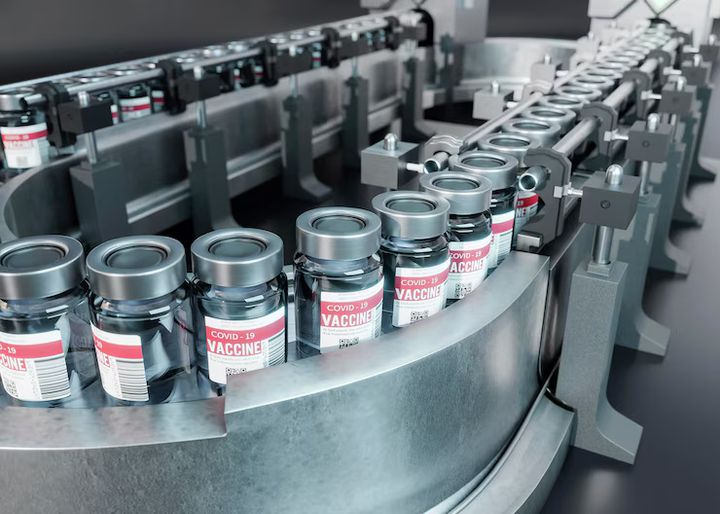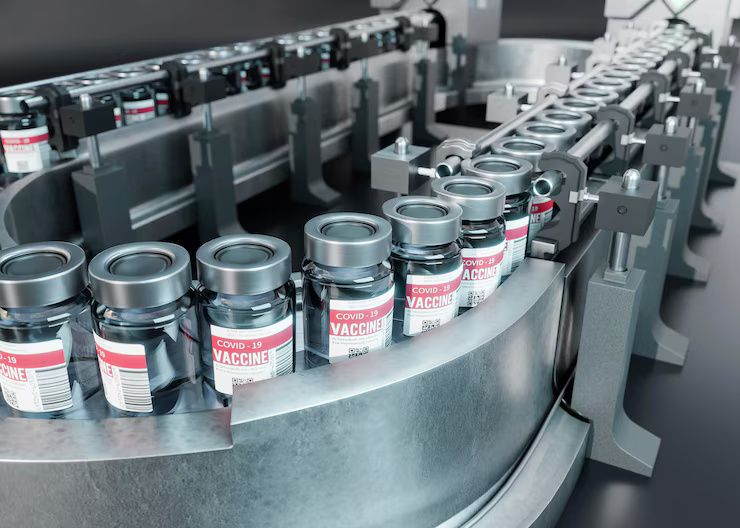
Understanding the Different Types of Labeling Machines for Your Business
In modern production and packaging, branding machines play an important role in ensuring that products are clearly identified, detected and market-taiyars. The labels are more than just stickers; They have the necessary information such as brand names, product specifications, security instructions and legal details such as expiry dates or batch numbers.
Manual marking methods were once enough for small businesses. As demand increased and industries expanded, automation became necessary. The label was developed to use the label with accuracy, speed and stability. Today, they are important in industries such as food and drink, drugs, cosmetics, logistics and consumables.

Meaning - why branding machines mean something today
Marking is not only a marketing tool, but also a requirement for compliance. Error or poorly enforced label can cause important questions such as misbranding, regulatory punishment or loss of consumer.
The main causes of markers include:
Accuracy and stability: Machines use the label equal and in the correct position, avoid errors or wrinkles.
Speed and efficiency: The automatic system treats thousands of goods per hour, meets the demand for industrial scale.
Compliance: The label often contains legally necessary details such as materials, allergies or barcodes. Machines ensure that they are used properly.
Cost savings: Automation reduces manual labor costs and reduces the waste material.
Professional appearance: Properly marked product brands increase reputation and consumer confidence.
For companies of all sizes, choosing the right type of branding machine can directly affect operating efficiency and long -term development.
Newer updates in the labeling of machine technology
Over the past year, labeling technology has strongly advanced, focusing on automation, stability and integration.
Smart Marking System (2024–2025): Machines are now equipped with IoT and AI, which allows monitoring of real -time, future maintenance and failure to detect.
Environmentally friendly content: Recycling and increasing demand for biodegradable label running machine compatibility with permanent glue and materials.
RFID and QR code integration: Companies move beyond traditional barcodes that are too advanced labeling that supports traceability in the supply chain.
Modular Design: Many machines now have interchangeable parts, making them adaptable to different labels and packaging formats.
High -speed system: New models can handle high throws, while maintaining accuracy, which is crucial for industries with dense production programs.
These updates show that labeling is not only intensified, but also becomes more intelligent and more environmentally responsible.
Laws and guidelines affecting labeling practice
Marking is strongly regulated in industries, as it directly affects consumer safety and openness. Governments and international organizations establish rules that manufacturers must follow, and markers help companies meet these requirements.
Some primary examples include:
Food and Drug Administration (FDA) - USA: Food, implementing strict brand standards for beverages and drugs.
EU labeling instructions: Tire requirements such as nutrition facts, recycling symbols and CE marks.
Bureau of Indian Standards (BIS): Marking is in India, and ensures product safety and consumer awareness.
Pharmaceutical regulation: Agencies provide a mandate for dosage for medication, expiry dates and clear marking of batch codes worldwide.
Environmental division Act: Fast manufacturers must use recycled packaging and include eco-rich on products.
Tags are designed to maintain these legal requirements and ensure that the business is obedient while avoiding expensive fines or remembers.
Equipment and resources for labeling solutions
Companies can rely on different devices and resources to adapt their labeling processes:
| Tool / Resource | Purpose |
|---|---|
| Label design software (e.g., BarTender, NiceLabel) | Create compliant and professional label templates |
| Barcode and QR code generators | Add traceability and digital access features to products |
| Label cost calculators | Estimate material and operational expenses |
| Industry guidelines (FDA, EU, BIS) | Provide official labeling rules and compliance standards |
| Automation platforms | Integrate labeling machines with production lines for seamless operation |
| Training resources | Online tutorials and workshops on machine setup and maintenance |
These resource labeling procedures support businesses in adapting to the more efficient, accurate and optimized rules.
question to ask
What are the most important types of branding machines?
The most common types include pressure-sensitive labs, sleeve-lables, enveloping labels, front-and-back labs and print-and-pilly systems. Each different products and packaging requirements.
Which industries use markers most?
Food and drink, drugs, cosmetics, logistics and consumables depend on machines to meet and meet the brand requirements.
Can small businesses benefit from branding machines?
Yes. Small, semi -automatic branding machines are available for companies with low production versions, which provides accuracy and efficiency without major investments.
Are brands compatible with permanent labels?
Many modern machines are designed to handle an environmentally friendly label made of resirclical or biodegradable materials, which support the green initiative.
How do branding machines support regulatory compliance?
They ensure the legally necessary details such as barcode, security instructions and expiry dates help companies avoid punishment.
Final thoughts
Labeling machines are not optional in today's fast -paced and heavily regulated markets. They ensure that the products are obedient, professional and effective to produce, and meet consumers' expectations of openness and quality.
As technology develops, companies can expect smart, sharp and green marking solutions that correspond to both operating requirements and regulatory requirements. For companies of all sizes, understanding a variety of labeling machines is the first step towards making better decisions in packaging and production.










